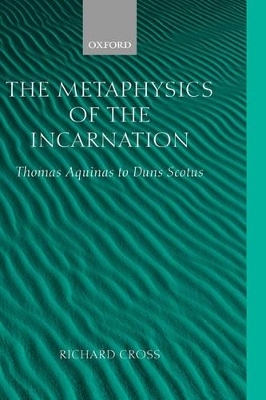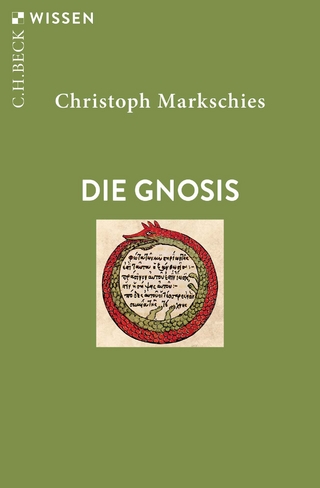
The Metaphysics of the Incarnation
Thomas Aquinas to Duns Scotus
Seiten
2002
Oxford University Press (Verlag)
978-0-19-924436-2 (ISBN)
Oxford University Press (Verlag)
978-0-19-924436-2 (ISBN)
The period from Thomas Aquinas (1225-1274) to Duns Scotus (c.1266-1308) is one of the richest in the history of Christian theology. The Metaphysics of the Incarnation provides a through examination of the doctrine in this era, making explicit its philosophical and theological foundations, and drawing conclusions for modern Christology.
The period from Thomas Aquinas to Duns Scotus is one of the richest in the history of Christian theology. The Metaphysics of the Incarnation aims to provide a thorough examination of the doctrine in this era, making explicit its philosophical and theological foundations. Medieval theologians believed that there were good reasons for supposing that Christ's human nature was an individual. In the light of this, Part 1 discusses how the various thinkers held that an individual nature could be united to a divine person. Part 2 shows how one divine person could be incarnate without any other. Part 3 deals with questions of Christological predication, and Part 4 shows how an individual nature is to be distinguished from a person. The work begins with a full account of the metaphysics presupposed in the medieval accounts, and concludes with observations relating medieval accounts to modern Christology.
The period from Thomas Aquinas to Duns Scotus is one of the richest in the history of Christian theology. The Metaphysics of the Incarnation aims to provide a thorough examination of the doctrine in this era, making explicit its philosophical and theological foundations. Medieval theologians believed that there were good reasons for supposing that Christ's human nature was an individual. In the light of this, Part 1 discusses how the various thinkers held that an individual nature could be united to a divine person. Part 2 shows how one divine person could be incarnate without any other. Part 3 deals with questions of Christological predication, and Part 4 shows how an individual nature is to be distinguished from a person. The work begins with a full account of the metaphysics presupposed in the medieval accounts, and concludes with observations relating medieval accounts to modern Christology.
Richard Cross is Tutorial Fellow in Theology, Oriel College, and University Lecturer in Theology, University of Oxford
1. THE HISTORICAL AND PHILOSOPHICAL BACKGROUND; CONSEQUENCES OF THE UNION; 6. SOME POINTS OF CHRISTOLOGICAL CONSENSUS; 8. CHRISTOLOGICAL PREDICATION; COUNTING PERSONS AND NATURES; 11. THE HISTORICAL BACKGROUND; A PROGRAMME FOR CHRISTOLOGY
| Erscheint lt. Verlag | 1.3.2002 |
|---|---|
| Verlagsort | Oxford |
| Sprache | englisch |
| Maße | 163 x 242 mm |
| Gewicht | 685 g |
| Themenwelt | Geschichte ► Teilgebiete der Geschichte ► Religionsgeschichte |
| Geisteswissenschaften ► Philosophie ► Philosophie des Mittelalters | |
| Religion / Theologie ► Christentum ► Kirchengeschichte | |
| ISBN-10 | 0-19-924436-7 / 0199244367 |
| ISBN-13 | 978-0-19-924436-2 / 9780199244362 |
| Zustand | Neuware |
| Haben Sie eine Frage zum Produkt? |
Mehr entdecken
aus dem Bereich
aus dem Bereich
Herkunft, Blüte, Weg nach Osten
Buch | Hardcover (2024)
C.H.Beck (Verlag)
CHF 55,90
Von den Anfängen bis zur Gegenwart
Buch | Hardcover (2022)
C.H.Beck (Verlag)
CHF 47,60


